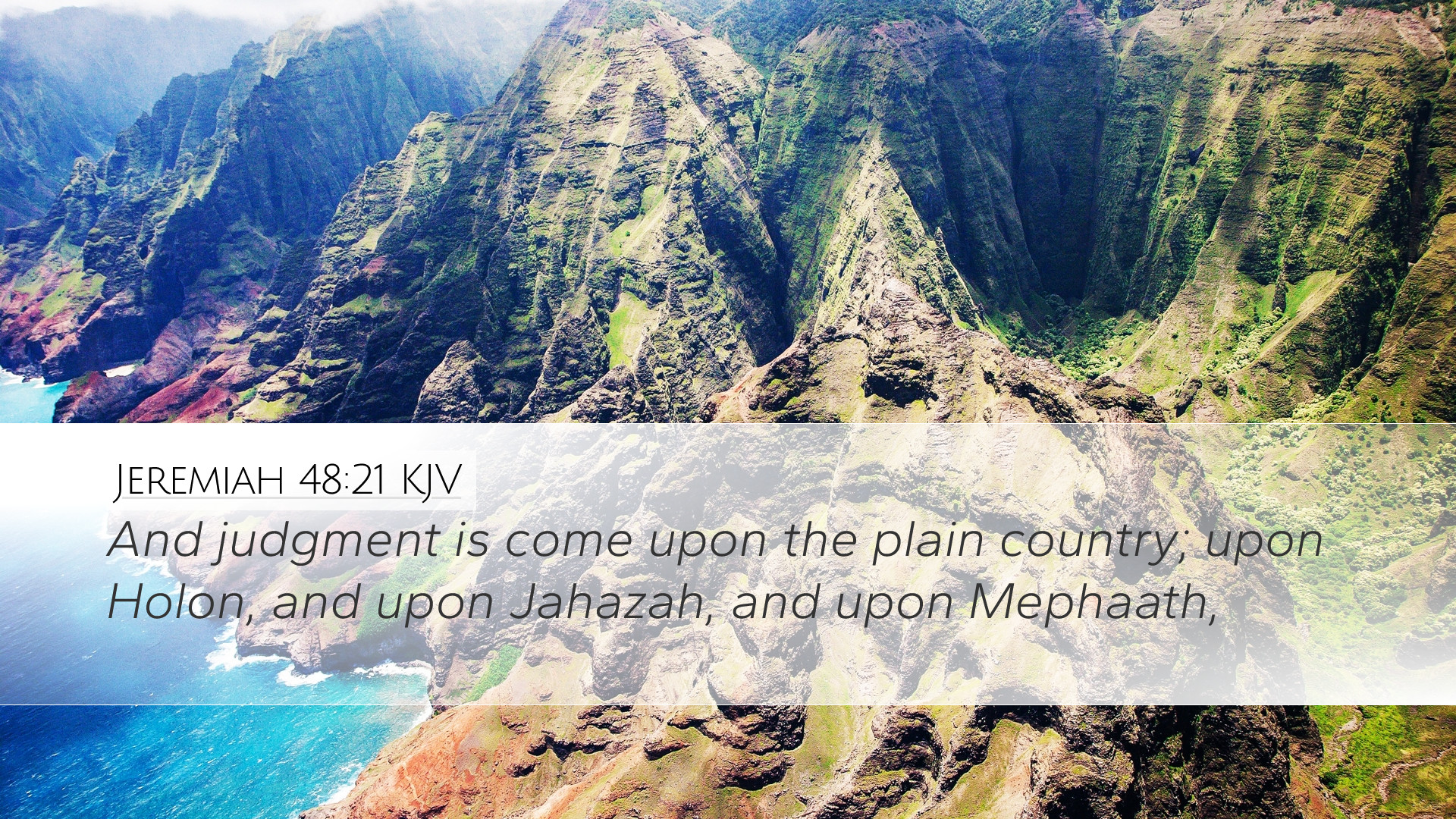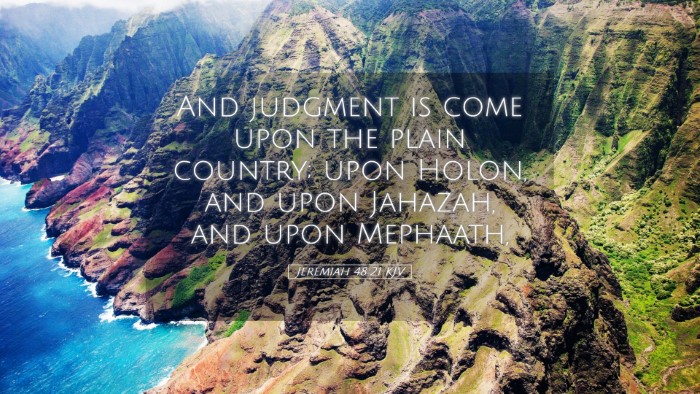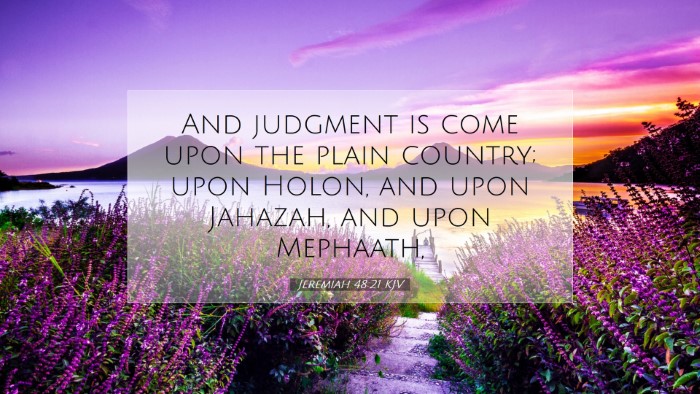Bible Commentary on Jeremiah 48:21
Jeremiah 48:21 states: "And judgment is come upon the plain country, upon Holon, and upon Jahaz, and upon Mephaath."
Introduction
This verse within the text of Jeremiah serves as a critical proclamation regarding God's impending judgment against Moab, which represents not only an historical context of a nation but also spiritual implications and lessons for contemporary readers.
Contextual Background
The prophecy against Moab was pronounced during a time of great moral decay and idolatry. Historically, Moab had a tumultuous relationship with Israel, often marked by hostility and warfare, influenced by their pagan practices. Jeremiah, as a prophet, conveys God’s message of warning, seeking repentance and reconciliation, yet firmly advising against continued disobedience.
Commentary Insights
Matthew Henry's Commentary
Matthew Henry highlights the prophetic judgment as a necessary consequence of Moab's unfaithfulness and rebellion against God. He points out that the specific locations mentioned—Holon, Jahaz, and Mephaath—reflect the broader implications of divine retribution on the whole nation. Henry emphasizes that God's justice is inevitable and serves as a reminder that nations, like individuals, will eventually face the consequences of their actions.
Albert Barnes' Notes on the Bible
Albert Barnes provides a thorough analysis of the geographical mentions in the verse, explaining that these locations were significant cities within Moab. His interpretation suggests that the use of specific names underscores the certainty of judgment. Barnes notes the devastation that would affect Moab’s cities, indicating a total ruin as a divine response to their idolatry and immorality. He also underlines the symbolism of the "plain country," as it represents the land that would be stripped of its glory.
Adam Clarke's Commentary
Adam Clarke addresses the broader theological implications of the judgment pronounced in this verse. He elaborates on the need for nations to heed the warnings of divine displeasure and highlights that God's judgment is not arbitrary but a reflection of His righteousness. Clarke posits that the judgment upon Moab serves as an archetype of God’s dealing with nations throughout history. He urges readers to recognize that despite the historical specificity, the principles of God’s justice are timeless.
Theological Implications
The verse serves to remind readers of the seriousness with which God views sin, especially in national contexts. It raises critical questions regarding the responsibility of nations to uphold God's standards of justice and righteousness. The direct mention of cities emphasizes that judgment can occur at various societal levels—from personal to national. Theological reflection should lead to the understanding that God remains steadfast and will not overlook iniquity for prolonged periods.
Practical Applications
- For Pastors: This verse provides a strong foundation for preaching on the themes of justice and accountability, encouraging congregations to reflect on the importance of righteousness in both personal and communal contexts.
- For Students: Analyzing the socio-political context of Moab can enhance an understanding of historical theology and God’s consistency in His dealings with nations.
- For Theologians: This passage invites scholarly exploration into the nature of divine justice, the expectations God has for nations, and the consequences that arise from collective disobedience.
- For Bible Scholars: This judgment motif provides a rich area for research on prophetic literature and its application to current events, drawing parallels between ancient and modern nations.
Conclusion
Jeremiah 48:21 serves as a profound reminder of the sovereignty of God in administering justice. The prophetic warning not only pertains to Moab but also resonates across generations. Readers today are called to reflect on their national and community responsibilities in the light of God’s unwavering standards for holiness and righteousness. This passage challenges us to consider the implications of judgment while offering hope in the call for repentance and restoration.


